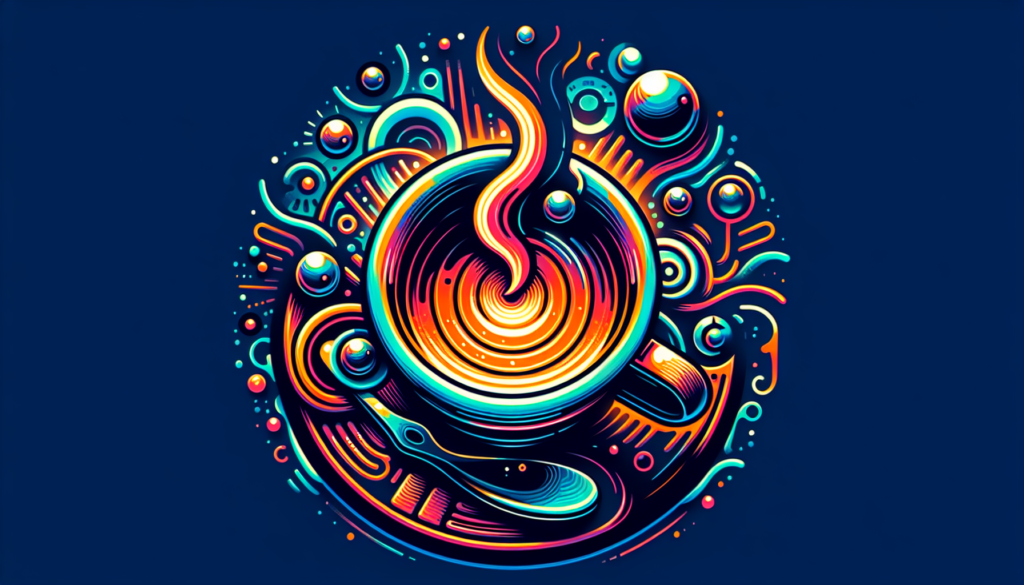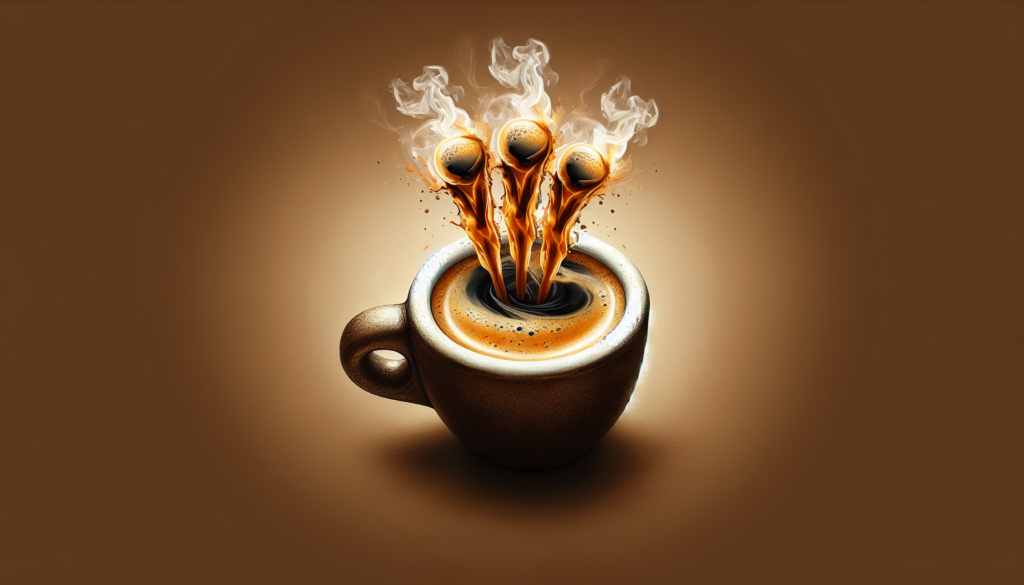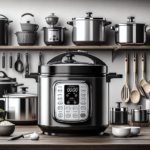So, you’re a coffee lover who can’t get enough of that rich, bold taste. And maybe you’ve heard some people say that more than one shot of espresso is just too much caffeine. But is it really? Well, let’s explore that question and find out if indulging in three shots of espresso is pushing the caffeine limits or if it’s just the right amount to kickstart your day.

The Effects of Caffeine
The Impact of Caffeine on the Body
Caffeine, a natural stimulant found in coffee, tea, and many other beverages and foods, has various effects on the body. It works by stimulating the central nervous system, increasing alertness and reducing fatigue. Caffeine also increases dopamine levels in the brain, which contributes to feelings of pleasure and can enhance mood. Additionally, caffeine can act as a diuretic, increasing urine production. However, it is important to be mindful of the potential impacts of excessive caffeine consumption on the body.
Recommended Daily Caffeine Limits
While caffeine can provide certain benefits, it is crucial to consume it in moderation. The FDA recommends a daily caffeine intake of up to 400 mg for most healthy adults, which is roughly equivalent to four cups of brewed coffee. However, individual sensitivity can vary, and some people may experience negative effects with smaller amounts of caffeine. Pregnant women and individuals with certain health conditions should consult with their healthcare provider for specific guidelines.
Caffeine Tolerance
Regular consumption of caffeine can lead to the development of tolerance over time. This means that your body becomes accustomed to the effects of caffeine, and you may need higher doses to achieve the same level of alertness or energy. However, it is essential to be aware that increasing caffeine intake can also have adverse effects, such as increasing the risk of sleep disturbances, anxiety, and gastrointestinal issues. Understanding your own caffeine tolerance and being mindful of your consumption is key to maintaining a healthy balance.
Understanding Espresso
What is Espresso?
Espresso is a concentrated form of coffee that is made by forcing pressurized hot water through finely ground coffee beans. Unlike regular coffee brewing methods, which involve longer brewing times, espresso is quickly extracted, resulting in a more robust and intense flavor profile. Due to its concentrated nature, espresso is often served in smaller serving sizes compared to regular coffee.
Caffeine Content in Espresso
Espresso generally contains higher caffeine content per unit volume compared to regular brewed coffee. A typical shot of espresso, which is approximately one ounce, contains around 63 milligrams of caffeine. However, it is essential to note that the actual caffeine content can vary depending on factors such as the type of coffee beans used, the brewing method, and the serving size.
Serving Size of Espresso
Espresso is typically consumed in small serving sizes, often as a single shot or as the base for various espresso-based beverages such as lattes, cappuccinos, or macchiatos. However, it is not uncommon for individuals to consume multiple shots of espresso in a single serving or across the course of a day. It is crucial to consider the cumulative caffeine intake from multiple servings, especially if you are sensitive to caffeine or have other health concerns.
The Health Benefits of Espresso
Antioxidant Properties
Like regular coffee, espresso contains beneficial antioxidants, such as chlorogenic acid and melanoidins, that can help protect the body against oxidative stress. These antioxidants have been linked to various health benefits, including reducing the risk of certain chronic diseases, such as type 2 diabetes and certain types of cancers. However, it is important to note that the overall impact of antioxidants in espresso may vary depending on individual factors and the overall dietary context.
Improved Cognitive Function
Caffeine, the primary active ingredient in espresso, has been shown to enhance cognitive function, including improved alertness, concentration, and reaction time. It acts by blocking the inhibitory neurotransmitter adenosine in the brain, which promotes increased neuronal firing and the release of other neurotransmitters like dopamine and norepinephrine. These effects may contribute to improved focus, productivity, and overall mental performance.
Mood Enhancement
Espresso, with its caffeine content, can also have psychoactive effects that positively impact mood. Caffeine stimulates the release of certain neurotransmitters, such as dopamine and serotonin, which are associated with pleasure and mood regulation. This can result in a temporary mood enhancement, increased feelings of well-being, and even mild euphoria. However, it is important to note that individual responses to caffeine can vary, and excessive consumption may lead to jitters, anxiety, or irritability in some individuals.
The Potential Risks of Consuming Too Much Espresso
Increased Heart Rate and Blood Pressure
One of the potential risks of consuming excessive espresso is that it can lead to increased heart rate and elevated blood pressure. Caffeine stimulates the release of adrenaline, which can cause the heart to beat faster and blood vessels to constrict. While this effect is generally transient and may not pose significant risks for most individuals, those with pre-existing heart conditions or hypertension should be cautious and consult with their healthcare provider.
Sleep Disruption and Insomnia
Caffeine’s stimulating properties can interfere with sleep, leading to difficulties falling asleep or staying asleep. This is especially true if espresso or caffeine-containing beverages are consumed later in the day or evening. The effects of caffeine can last for several hours, and individuals who are sensitive to its effects may experience sleep disturbances. It is advisable to establish a cutoff time for caffeine consumption and allow sufficient time for the body to metabolize and eliminate caffeine before bedtime.
Digestive Issues
Excessive consumption of espresso or caffeine can also lead to digestive issues such as acid reflux, heartburn, or gastrointestinal discomfort. Caffeine can relax the lower esophageal sphincter, allowing stomach acid to flow back into the esophagus, causing discomfort. Additionally, caffeine can stimulate the intestines, potentially leading to increased bowel movements or loose stools. Individuals with pre-existing digestive conditions should be mindful of their caffeine intake and its potential effects.

Factors Affecting Caffeine Sensitivity
Individual Tolerance Levels
Caffeine sensitivity can vary widely among individuals. Some people are more sensitive to its effects and may experience jitters, anxiety, or sleep disturbances even with lower amounts of caffeine. On the other hand, some individuals have a higher tolerance and may require higher doses to experience the desired benefits. Understanding your individual tolerance level can help you make informed decisions about your caffeine consumption and avoid any potential adverse effects.
Age and Metabolism
Age and metabolism can also play a role in caffeine sensitivity. As we age, our metabolism tends to slow down, and the body may take longer to process and eliminate caffeine. This can result in an increased sensitivity to caffeine’s effects and may require adjustments in caffeine consumption to avoid negative impacts such as insomnia or gastrointestinal issues.
Interaction with Medications
Caffeine can interact with certain medications, enhancing or diminishing their effects. Some medications, such as certain antibiotics and antidepressants, can inhibit the breakdown of caffeine in the body, leading to a prolonged presence of caffeine and potentially increased sensitivity. Conversely, some medications, such as certain asthma medications, can be negatively affected by caffeine, reducing their effectiveness. It is important to consult with your healthcare provider about any potential interactions between caffeine and your medications.
Balancing Caffeine Intake
Considering Total Daily Caffeine Consumption
To maintain a balanced caffeine intake, it is important to consider not only the caffeine content of espresso but also other sources of caffeine consumed throughout the day. This includes other beverages like tea, soda, or energy drinks, as well as foods like chocolate or certain medications. Keeping track of your total daily caffeine consumption can help you stay within the recommended limits and avoid excessive consumption.
Alternative Drinks with Lower Caffeine Content
If you are concerned about the potential risks or impacts of consuming too much caffeine from espresso, there are alternative drinks available with lower caffeine content. Opting for decaffeinated coffee or tea, herbal teas, or caffeine-free beverages can still provide enjoyable drinking experiences without the stimulating effects of caffeine. Exploring these alternatives can be a way to diversify your beverage choices while managing your caffeine intake.
Moderation and Listening to Your Body
One of the key aspects of maintaining a healthy caffeine balance is practicing moderation and listening to your body’s signals. Pay attention to how you feel after consuming caffeine and adjust your intake accordingly. If you experience negative effects such as jitters, sleep disturbances, or digestive issues, it may be a sign that you should reduce your caffeine consumption. Being mindful of your personal reactions and finding a balance that works for you is essential for optimizing your caffeine consumption.
The Link Between Caffeine and Sleep
Caffeine’s Impact on Sleep Quality
Caffeine can significantly impact sleep quality, particularly if consumed close to bedtime. It can interfere with the body’s natural sleep-wake cycle and the onset of sleep by blocking adenosine receptors in the brain. Adenosine is responsible for promoting feelings of sleepiness and relaxation. Consuming caffeine, especially in high doses or later in the day, can disrupt this process, leading to difficulties falling asleep and a decrease in overall sleep quality.
Establishing a Cutoff Time for Caffeine
To minimize the potential negative effects of caffeine on sleep, it is advisable to establish a cutoff time for caffeine consumption. This time should be several hours before bedtime to allow your body sufficient time to metabolize and eliminate the caffeine from your system. Different individuals may have different caffeine metabolization rates, so it may require some experimentation to determine the ideal cutoff time that works for you.
Developing a Bedtime Routine
Creating a relaxing bedtime routine can also help promote better sleep and counteract the stimulating effects of caffeine. Engaging in activities such as reading, taking a warm bath, or practicing relaxation techniques can signal to your body that it is time to wind down and prepare for sleep. A consistent and calming routine leading up to bedtime can enhance sleep quality, even if you have consumed caffeine earlier in the day.
Caffeine and Dehydration
Caffeine’s Diuretic Effects
Caffeine is often associated with its diuretic properties, meaning it can increase urine production. This has led to the common belief that caffeine can cause dehydration. While caffeine does have mild diuretic effects, the impact on overall hydration levels is minimal when consumed in moderate amounts. Regular coffee or espresso consumption within recommended limits is unlikely to have a significant dehydrating effect, especially if you also consume an adequate amount of fluids throughout the day.
Hydration Tips for Regular Espresso Drinkers
To ensure optimal hydration while consuming espresso, it is important to accompany it with sufficient water intake. Drinking a glass of water alongside your espresso can help counteract any potential mild diuretic effects and maintain adequate hydration levels. Additionally, regular water intake throughout the day, outside of caffeine consumption, is essential for overall hydration and optimal bodily functions.
Monitoring Water Intake
Monitoring your overall water intake can help ensure proper hydration, especially if you are a regular consumer of espresso or other caffeinated beverages. Aim to drink several glasses of water throughout the day, in addition to any other beverages you consume. Pay attention to your body’s signals of thirst, and make it a habit to hydrate consistently to maintain optimal bodily functions.
Individual Factors to Consider
Overall Health and Sensitivity
Individual factors such as overall health and sensitivity can significantly impact how your body responds to espresso and caffeine consumption. Certain health conditions, such as heart conditions, high blood pressure, or gastrointestinal disorders, may require stricter limitations on caffeine intake or complete avoidance altogether. Additionally, some individuals may be more prone to experiencing negative effects from caffeine, such as anxiety or sleep disturbances. Understanding and considering these factors are important for making informed decisions about your espresso consumption.
Pre-existing Sleep Disorders or Conditions
If you have pre-existing sleep disorders or conditions such as insomnia or sleep apnea, it is particularly important to monitor and manage your caffeine intake carefully. Caffeine can exacerbate sleep difficulties and interfere with the treatment or management of these conditions. Consulting with your healthcare provider or sleep specialist can provide guidance on how to best navigate your caffeine consumption to minimize any negative effects on your sleep.
Lifestyle and Daily Routine
Your lifestyle and daily routine can also influence how you incorporate espresso into your life. If you lead an active and busy lifestyle, moderate caffeine consumption may provide certain benefits, such as increased energy and focus. However, if you have a more relaxed routine or are more sensitive to caffeine, you may need to consider adjusting your consumption accordingly. It is essential to find a balance that aligns with your individual needs, preferences, and overall well-being.
Listening to Your Body
Recognizing Signs of Caffeine Overconsumption
Listening to your body is key to maintaining a healthy relationship with caffeine. It is important to pay attention to signs of caffeine overconsumption, such as jitters, increased heart rate, digestive discomfort, or sleep disturbances. If you notice any of these symptoms, it may be an indication that you should reduce your caffeine intake or adjust your consumption habits to find a better balance for your body.
Adjusting Consumption Based on Personal Reactions
Individual reactions to caffeine can vary, so it is crucial to adjust your consumption based on how your body responds. If you find that a certain amount of espresso leaves you feeling jittery or anxious, consider reducing your intake. On the other hand, if you feel that you are not experiencing the desired effects, you may choose to increase your consumption slightly. Finding the right balance for your body promotes overall well-being and ensures that you are making the most of your caffeine consumption.
Seeking Professional Advice
If you have any concerns or questions regarding your caffeine consumption or its effects on your health, it is always advisable to seek professional advice. Consulting with a healthcare provider, registered dietitian, or sleep specialist can provide personalized guidance and recommendations based on your individual circumstances. They can help you navigate any potential risks or challenges associated with caffeine consumption and ensure that your habits align with your overall health goals.
In conclusion, while 3 shots of espresso can provide a significant dose of caffeine, it is essential to consider individual factors, recommended daily limits, and potential risks and benefits. Understanding your body’s response to caffeine and listening to its signals can help you maintain a healthy balance and optimize your consumption to suit your needs and preferences. With mindfulness and moderation, you can enjoy the benefits of espresso while minimizing any potential adverse effects.






